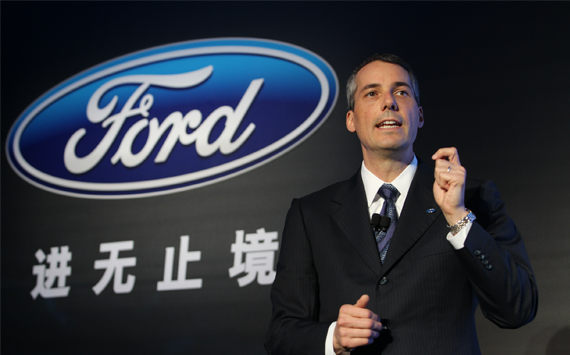
Ford's Q4 report
Ford's Q4 loss to the automaker, but the company has high expectations for its new Mustang Mach-E EV, F-150 and Transit vans. Ford plans to allocate huge investments for its electric and autonomous vehicles.
Ford (F) shares, up 63.4% over the past six months, rose slightly in after-hours trading on Thursday, on the back of the release of its Q4 and full-year 2020 report.
Ford's earnings and revenue report Ford reported Q4 earnings per share of $0.34, three times last year's figure of $0.12 and better than analysts estimates of a $0.07 loss per share. Total quarterly earnings fell 16% to $33.2bn, below Wall Street's average forecast of $33.89bn.
Ford's fourth-quarter loss was $2.8 billion, down from a loss of $1.7 billion a year earlier.
Ford sales in 2020
In its sales report last month, Ford said total vehicle sales in the fourth quarter of 2020 fell 9.8% to 542,749 vehicles, with all brands showing declines: FoMoCo, Ford and Lincoln. While Ford's quarterly sales in China were up 30%, sales in Europe were down 15%.
However, Ford's retail sales rebounded to 5.3% in December.
As for all of 2020, Ford's total truck sales fell 11.3%, while SUV sales were down 9.7%, and sales of passenger cars, which Ford is discontinuing except for key models such as the Mustang, were down 44.7% from 2019.
Ford lost $1.28bn in 2020 as it underwent global restructuring and faced the aftermath of the coronavirus pandemic. By comparison, earnings in 2019 were $84 million. Revenues for the full year last year fell 18% to $127.1 billion. Ford had $14.34bn in cash and equivalents at the end of the quarter, down from $9.06bn at the end of the period last year. Meanwhile, debt stood at $137.67bn, down slightly from last year's $140.02bn.
Ford's outlook for 2021
Ford CFO John Lawler said the company expects to make between $8bn and $9bn in pre-tax profits by 2021. However, the global semiconductor chip shortage, he said, could reduce Ford's profits from $1bn to $2.5bn this year.
Earlier on Thursday, Ford said next week it would significantly cut production at plants in Michigan and Missouri that make the lucrative F-150 pickups because of a global shortage of semiconductor chips.






